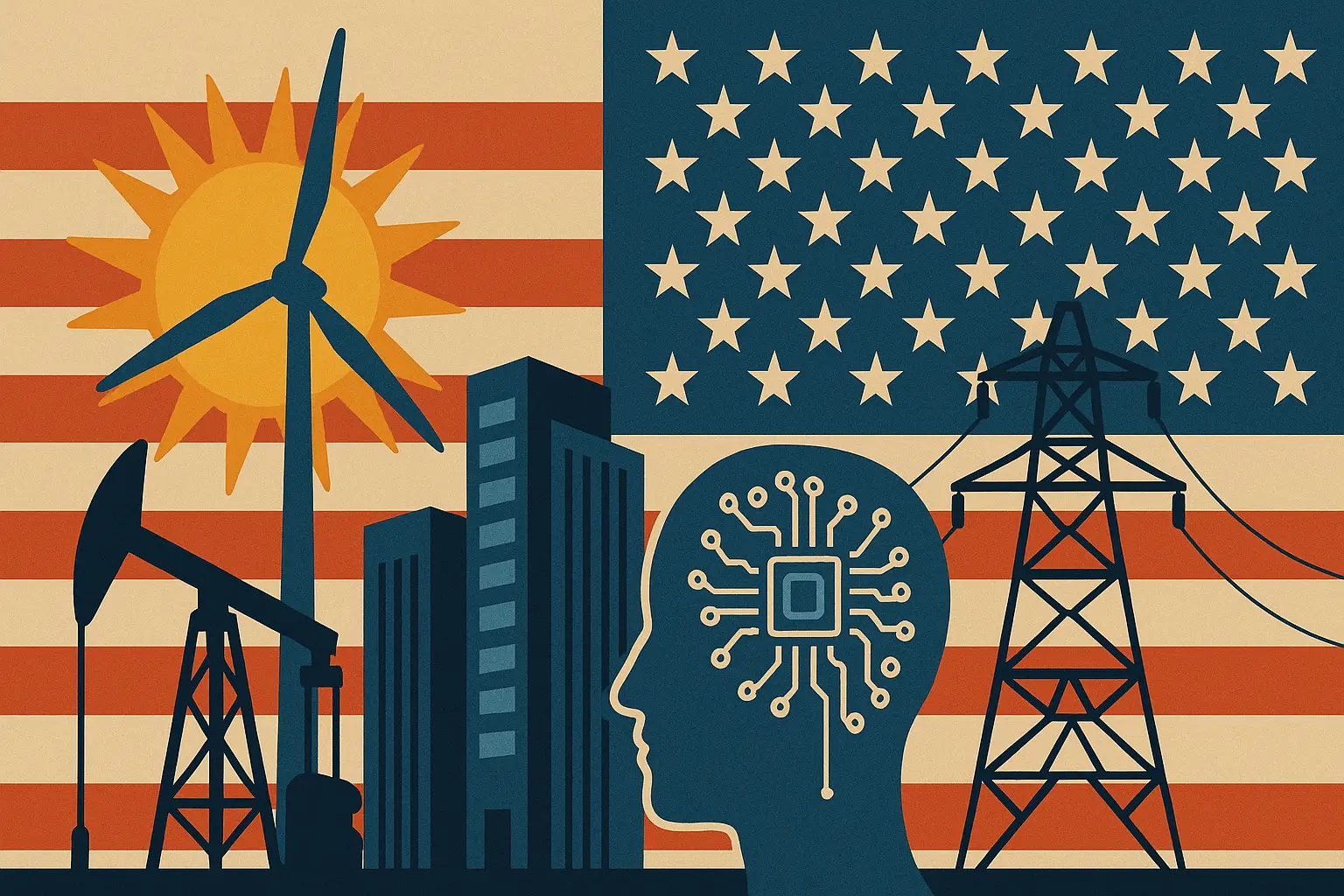Energy and AI: Building the Next Era of American Prosperity

October 16, 2025
By: Sandra Benitez is Executive Director of The LIBRE Initiative, the largest center-right Hispanic grassroots organization.
We’ve all read the headlines: artificial intelligence (AI) is the future. AI is transforming nearly every part of our lives — from health care breakthroughs to business innovation to how our kids learn in school.
But behind every AI advancement is a simple truth: AI runs on power. Massive data centers, cloud networks, and advanced chip manufacturing all require enormous amounts of reliable, affordable electricity. Without a strong energy foundation, America risks falling behind in this technological revolution.
U.S. lawmakers must build critical energy infrastructure, expand liquified natural gas (LNG) and crude oil exploration, and reform the federal permitting process for infrastructure projects.
If the United States wants to stay competitive with AI in the future, we’ll have to start making some changes now. For AI to thrive, it needs data centers and power.
Blackstone chief operating officer, Jon Gray, made this point recently when he said that the next best “big thing” among the three categories is chips, data center, and power. The first two things depend entirely on the third, making electricity demand a critical driver for the future.
By prioritizing energy reform, U.S. employers will be better able to harness the power of AI, an outcome that will create jobs for all Americans. This is great news for Hispanics, who in 2023 filled nearly one-third of new jobs created in the energy industry, according to the U.S. Department of Energy. More jobs lead to more opportunities.
The need for better energy policies has never been greater. The United States stands on the precipice of another technological revolution that could raise incomes, improve living standards, and unleash new innovations for the benefit of every citizen.
That makes energy reform more than an economic issue — it is a competitiveness issue. By expanding generation, modernizing the grid, and streamlining permitting, the U.S. can ensure that AI is developed here at home, creating good-paying jobs and technological leadership that benefits every community. For Latinos, who already play a vital role in both the energy and technology sectors, this is a chance to help shape the industries that will define our future.
But that revolution cannot happen without access to energy.
This year and next, U.S. electricity demand is projected to grow more than 2 percent annually, with the fastest growth in areas attracting large data centers and manufacturing facilities, such as Texas and Virginia; the National Electrical Manufacturers Association predicts electricity demand will spike up to 50 percent by 2050. The Council of Economic Advisers recently reported that by 2028, U.S. data center expansion will add between 150 and 400 terawatt-hours (TWh) of electricity use compared to 2023 levels.
This surge would almost double or even triple data centers’ share of total U.S. electricity consumption. Yet outdated infrastructure, complex permitting processes, and redundant regulatory authorities are delaying or abandoning critical energy projects.
Permitting reform, specifically — a set of changes that will make it easier to build energy infrastructure — is one of the few issues on which Republicans and Democrats agree. The bipartisan SPEED Act was introduced in June, while the bipartisan Problem Solvers Caucus introduced its framework.
These bills are a good start. Reforming the permitting process will eliminate multi-agency bottlenecks and create a streamlined, predictable approval process that encourages energy innovation and investment.
But federal lawmakers need to take three other steps as well.
First, they must strengthen the nation’s electricity grid to ensure 24/7 power reliability as demand increases, particularly in regions experiencing surging data center growth.
Second, lawmakers must build critical energy infrastructure, including new pipelines, export terminals, and delivery systems to move energy efficiently across the country and to global markets. Clean nuclear energy must be part of this equation.
Finally, the federal government needs to expand the nation’s capacity to produce LNG and crude oil for domestic use and export. A steady supply of shipments from the United States will make for a safer world. We can and should enhance U.S. national security by providing energy to allies rather than leaving them dependent on authoritarian regimes.
Latinos agree there is a need for innovative energy policies like these. Nearly 9 in 10 say utility prices are too high, while about 80 percent say the U.S. needs to produce more of its own oil and gas. That latter issue is incredibly bipartisan: 97 percent of Hispanic Republicans and 69% of Hispanic Democrats agree with that statement.
Driving down the cost of American energy benefits Latinos and all Americans because everything — getting to work, making dinner, even kids’ online homework — requires electricity. Lowering the price of energy lowers our cost of living.
Energy policy reform is not just about keeping the lights on or lowering electricity bills. It affects the future prosperity of all our communities, especially Latino communities.
Originally posted on Now Media.


